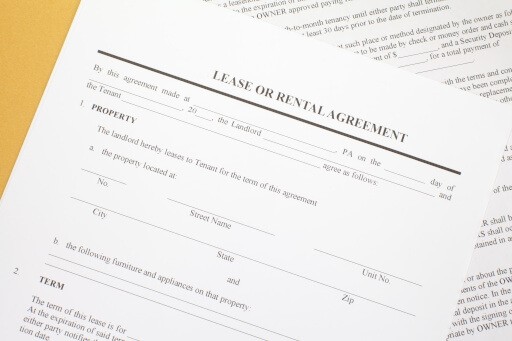
Cosigners. Some landlords are firmly against them, while others cater to tenants who may need one. As a landlord, it's your choice whether you allow cosigners. If you choose to allow cosigners, you need a solid strategy on how to vet them.
- What is a cosigner?
- Why would a tenant need a cosigner?
- Should you screen cosigners?
- Pros and cons of cosigners
What Is a Cosigner?
A cosigner is a person who signs the lease in addition to the tenant and is responsible for payments that the tenant doesn’t make. Since they signed the lease, they must abide by the lease terms as well.
Therefore, the cosigner suffers the same consequences as the tenant if the tenant violates the lease. If the tenant does not make a payment, it is up to the cosigner to make the payment or else both the tenant and cosigner may get evicted.
Since the cosigner signs the lease, they get penalized for non-financial issues as well. For instance, if a tenant gets evicted for noise disturbances, the cosigner will also have an eviction on their record.
Why Would a Tenant Need a Cosigner for a Lease?
When a potential applicant meets most of your criteria but is missing a few aspects, they would need a cosigner. This cosigner essentially acts as an insurance policy for the renter. Common reasons landlords require a lease cosigner is if the tenant lacks or doesn’t meet specific requirements such as:
- A credit history (or has a low credit score)
- Income requirements
- Rental history
- Employment history
- Criminal history
- Evictions
Cosigners don’t resolve all tenant issues. You still need to know what a good tenant and cosigner look like.
What makes a qualified lease cosigner?
The cosigner should make up for the shortcomings of the tenant and cover any gaps in the requirements. For example, if the applicant meets the income requirement but has no credit history, then you could ask them for a cosigner.
In this situation, their cosigner should have an excellent credit score and meet income requirements. Someone with a low credit score and not enough funds to sufficiently cover the tenant’s rent and their own living costs should not be considered a viable cosigner.
Cosigners are not a solution to tenant behavior. If the potential tenant has a history of damaging rental properties, noise complaints, or other non-financial lease violations, they might not be the best fit for your property.
Should You Screen Cosigners?
A cosigner signs the lease agreement like the tenant does; therefore, you must screen cosigners as thoroughly as you screen your tenants. All potential cosigners should fill out a rental application, provide proof of income, and agree to submit a credit and background check if your state allows.
Pros and Cons of Cosigners
No law requires landlords to allow cosigners, so the choice to let tenants have cosigners lies solely with you. If you’re considering allowing them, weigh the advantages and disadvantages of cosigners.
| Pros of Cosigners | Cons of Cosigners |
| Larger applicant pool | Doesn't ensure good tenants |
| Lower financial risk | Additional work |
Pros of cosigners
- More applicants: one of the biggest advantages of allowing cosigners is that you’ll have a larger pool of potential renters without sacrificing your rental income.
- Lower financial risk: cosigners are a safety net in case the tenant does not pay rent. A tenant might have circumstances that make it harder to verify income. They may not have established credit yet, but they might turn out to be a responsible tenant. It’s a good idea to have an additional measure in place, like a cosigner, just in case.
Cons of cosigners
- Don’t ensure good tenants: cosigners are helpful on the financial side but not as much on the behavioral side. They don’t ensure an applicant is a good tenant, so you must still thoroughly screen potential tenants.
- Additional work: since you have to screen a cosigner just as thoroughly as a tenant, it means double the work for you. This can take up more time and effort.
Screen Both Tenants and Cosigners on Apartments.com
Luckily Apartments.com makes it easy to screen tenants and cosigners so you can get the information you need and find a qualified renter fast. Apartments.com supports co-signers, guarantors, and co-applicants so you can screen whoever you need.
FAQ
What is the difference between cosigner and guarantor?
The difference between cosigners and guarantors is that guarantors are only responsible for paying rent when the tenant fails to do so. They don’t live in the apartment with the tenant; they are a back-up plan for landlords in case the tenant doesn’t pay rent.
Cosigners actually live in the apartment and are essentially another tenant. They are responsible for paying rent at the same time the tenant is.
How do I get a cosigner involved?
To get a cosigner involved, it is best to contact them via the method you outlined in the lease. This could be by mail, email, or phone.











